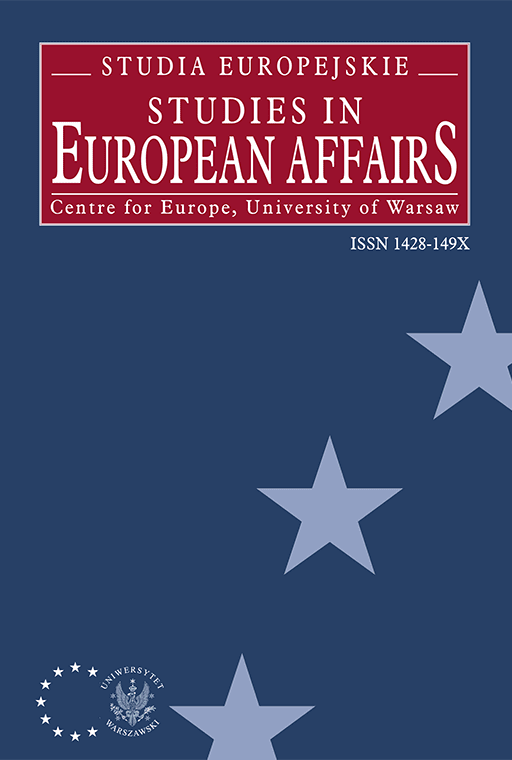
ISSUE: 1/2012
- Volume 61
- Number 1
- 2012
Subscribe NEWSLETTER
Studia Europejskie –
Studies in European Affairs
ISSN: 1428-149X
e-ISSN: 2719-3780
License
Articles published in the journal are under a Creative Commons Attribution – Non Commercial – No Derivatives 4.0 International License
Ochrona uprawnionych interesów państw członkowskich UE w unijnym prawie kontroli koncentracji
Protection of the ‘Legitimate Interests’ of EU Member States Under EU Merger Control Rules
Abstract
This paper considers primarily the legislative basis (II) and case law developments of the enforcement practice (III) of the legal institution designed to protect the legitimate interests of EU Member States as formulated by Article 21(3) Regulation 4064/89 and Article 21(4) Regulation 139/2004. The analysis covers both known groups of ‘legitimate interests’: (1) interests ‘legitimate’ explicite, also called ‘recognised’ or ‘listed and defined’ interests, namely, ‘public security’, ‘pluralism of the media’ and ‘prudential rules’; as well as (2) ‘other
legitimate interests’, also known as ‘innominate interests’ (IV). Covered are also competence and procedural issues surrounding legitimate interests relevant to merger control in light of EU rules of the control of concentrations (V). In analytical terms, the aim of this paper is to delineate the limits of the Member States’ intervention into merger control proceedings taking place before the European Commission that concern concentrations with an EU dimension. In this respect, the relation between EU merger control rules and public economic laws of its individual Member States is considered. On this basis, it is possible to draw conclusions helpful for the reconstruction of the Polish legal institution of an ‘exceptional clearance for anticompetitive concentrations’ contained in Article 20(2) of the Polish Competition and Consumer Protection Act of 2007 (VI).
Language: Polish
Pages: 51-82
How to Cite:
Harvard
Skoczny, T. (2012) "Ochrona uprawnionych interesów państw członkowskich UE w unijnym prawie kontroli koncentracji". Studia Europejskie – Studies in European Affairs, 1/2012, pp. 51-82.